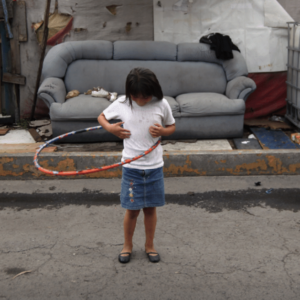Building Relationships with Diverse Families to Maximize Treatment Outcomes
$22.00

Course Type: Video – 1.5 hours
ASHA Course Code: Diversity, Equity, and Inclusion in Education, Training, Service Delivery, Public Policy – 7030
We all know that relationships between clients, families, and providers are critical in the therapeutic process. Yet sometimes, those relationships can be challenging to build.
In this presentation we share clinical experiences in building relationships with families from different cultures, appreciating cultural beliefs surrounding disabilities, and empowering parents to support their children in the intervention process. For each of these areas, we provide tips for implementing these practices in clinic and school settings.
| Population | Adult, Early Childhood, School Age |
|---|---|
| Duration | 1.5 hours |
| Credit | .15 Continuing Education Units |
| Topics | Diversity, Equity, & Inclusion (DEI), SLP Professional |
| Format | Video |
Financial Disclosure: Chelsey Contillo, M.A., CCC-SLP is a salaried employee of Bilinguistics. Bilinguistics receives royalty payments for online courses.
Non-Financial Disclosure: Chelsey Contillo does not have any non-financial relationships to disclose.
Financial Disclosure: Samantha Lovgren-Uribe, M.A., CCC-SLP received a salary from Bilinguistics. Bilinguistics receives royalty payments for online courses.
Non-Financial Disclosure: Samantha Lovgren-Uribe does not have any non-financial relationships to disclose.
When working with families from diverse cultural and linguistic backgrounds, speech-language pathologists need to consider differences in interaction styles, beliefs about disabilities, and ways to bridge differences in their approach to treatment. Building relationships with families is essential to the evaluation and treatment process. Through these relationships, the speech-language pathologist can establish parent trust in their treatment approach, increase parental participation and confidence in therapy, and provide a safe space for parents to ask questions and voice concerns about their child’s diagnosis.
Sharing intervention approaches and research in a culturally sensitive way that respects different beliefs surrounding disability is at the heart of building relationships with families. We begin by taking a close look at communication styles and family dynamics. We then establish an understanding of how different cultures view disabilities, which permits speech-language pathologists to adjust how they approach discussions about labeling diagnoses and implications of disabilities. Finally, we discuss ways to increase family participation in intervention. Families have varied levels of understanding of intervention practices. Speech-language pathologists can structure their intervention to promote family involvement, which helps increase family buy-in and confidence in their own abilities during home practice. Each therapy session includes rationale for treatment techniques, clear instructions and demonstrations of those techniques, allowing the family members to practice the techniques during the session, and providing constructive feedback. In this course, we will also provide examples from our own practice and practical application tips for speech-language pathologists to use in a variety of settings.
Participants will:
Describe different cultural views about disabilities.
List three considerations when presenting families with the diagnosis of a speech or language disorder.
List three important elements of relationship building in the therapeutic process.
List three ways to increase parental participation in the therapeutic process.
Time-Ordered Agenda:
05 minutes–Introductions and disclosures
15 minutes– Building Relationships with Families from Different Cultures
15 minutes– Cultural Beliefs Surrounding Disabilities
15 minutes– Empowering Parents to Support their Children in the Intervention Process
10 minutes- Closing
30 minutes- Discussion session with moderator
Need CEUs?

 Share
Share
 Tweet
Tweet
 LinkedIn
LinkedIn
 Pin
Pin
 Email
Email




